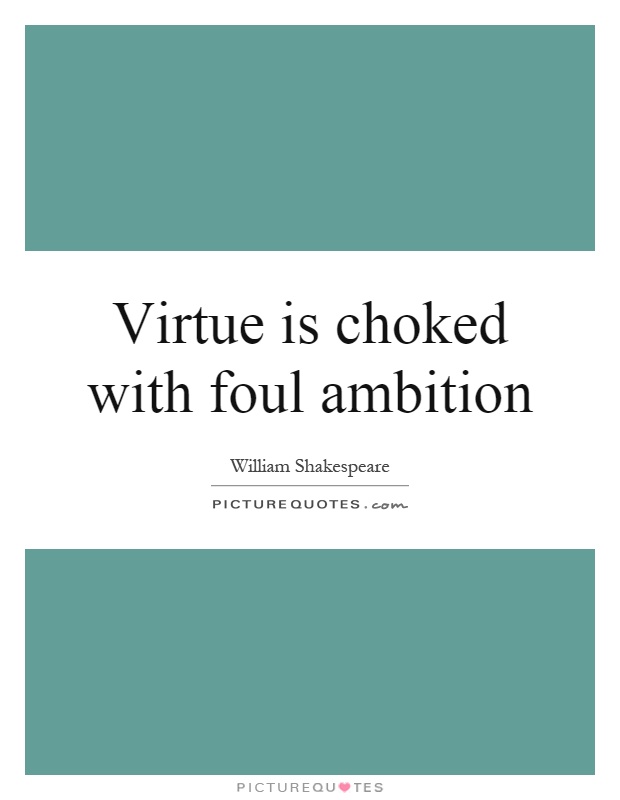Virtue is choked with foul ambition

Virtue is choked with foul ambition
In William Shakespeare's works, the theme of ambition and its corrupting influence on virtue is a recurring motif. One of the most famous lines that encapsulates this idea is "Virtue is choked with foul ambition" from the play Macbeth. This line is spoken by Macbeth himself, as he reflects on the consequences of his unchecked ambition and the moral decay that has resulted from his ruthless pursuit of power.Throughout the play, Macbeth's ambition drives him to commit heinous acts in order to achieve his goal of becoming king. He is initially portrayed as a noble and honorable warrior, but as his ambition grows, he becomes consumed by greed and paranoia. His once virtuous nature is gradually eroded by his insatiable desire for power, leading him to betray his friends, murder his king, and ultimately bring about his own downfall.
The line "Virtue is choked with foul ambition" highlights the idea that ambition, when taken to extremes, can corrupt even the most virtuous of individuals. In Macbeth's case, his ambition blinds him to the consequences of his actions and leads him down a dark path of moral decay. His once noble intentions are overshadowed by his ruthless ambition, and he becomes a tragic figure consumed by his own ambition.
Shakespeare uses Macbeth as a cautionary tale about the dangers of unchecked ambition and the corrupting influence it can have on virtue. The play serves as a reminder that ambition, when not tempered by moral principles, can lead to destruction and downfall. Macbeth's tragic fate serves as a warning to audiences about the consequences of allowing ambition to override one's sense of morality.












 Friendship Quotes
Friendship Quotes Love Quotes
Love Quotes Life Quotes
Life Quotes Funny Quotes
Funny Quotes Motivational Quotes
Motivational Quotes Inspirational Quotes
Inspirational Quotes